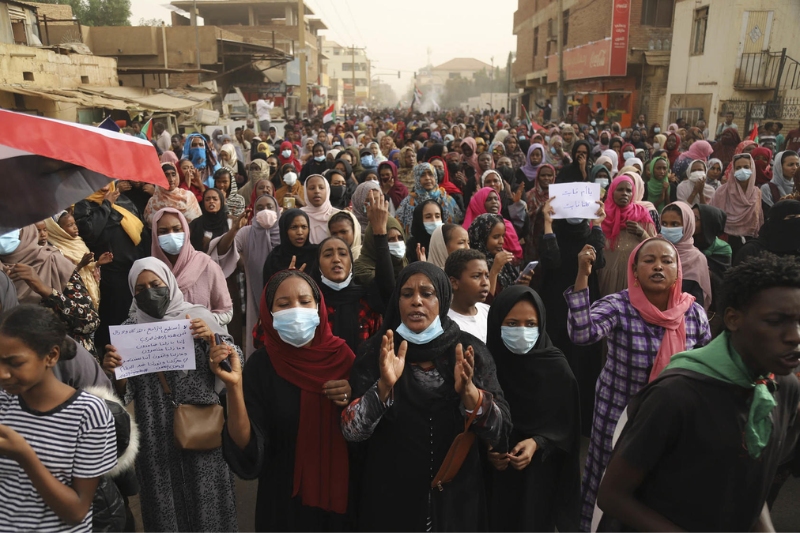The healthcare crisis unfolds in Gaza.
World Health Organization (WHO) Director-General Dr. Tedros Adhanom Ghebreyesus delivered a stark assessment of the dire situation in Gaza, emphasizing that only 15 hospitals are partially operational. The absence of clean water, sanitation, and overcrowded living conditions are fostering an environment conducive to disease spread. Nearly 90 percent of Gaza’s population, around 1.9 million people, are displaced, highlighting the severity of the crisis after almost 100 days of intense fighting.
Dr. Teresa Zakaria, Technical Officer for Health Emergency Interventions, expressed the challenge of dealing with the situation due to limited access. Delivering humanitarian aid faces insurmountable challenges due to intense shelling, mobility restrictions, fuel shortages, and disrupted communications. Dr. Tedros urged Israel to grant requests for humanitarian aid delivery, emphasizing the critical need for safe passage to provide essential supplies and medical assistance.
Obstacles in Sudan: A Deteriorating Situation
Dr. Tedros also shed light on the deteriorating situation in Sudan after nine months of conflict. Insecurity, looting, increased violence, mass displacement, and the spread of diseases like cholera are impeding WHO’s efforts and those of its partners to save lives. Disturbing reports of sexual and gender-based violence, family separation, and child recruitment further compound the challenges. With one in seven children under five suffering from acute malnutrition and a cholera outbreak with approximately 9,000 cases, Sudan is grappling with a multifaceted humanitarian crisis.
Ethiopian Health Crisis: Impact of Conflict
Dr. Tedros turned his attention to Ethiopia and expressed concern over the deteriorating health situation there, particularly in the Amhara region, where war has been raging since April 2023. Movement restrictions and fighting are impeding humanitarian assistance, resulting in damage to health facilities. The recent conflict in Amhara has completely destroyed 61 health institutions and partially damaged 39 others. Widespread hunger and disease outbreaks, exacerbated by conflict, drought, and displacement, are reported in Tigray and Amhara, with near-famine conditions documented.
COVID-19 concerns persist globally.
While acknowledging that COVID-19 is no longer a global health emergency, Dr. Tedros highlighted the virus’s ongoing impact. The JN.1 variant is currently the most frequently reported globally, and gatherings over the holiday period have led to increased transmission. December witnessed a 42 percent increase in hospitalizations and a 62 percent rise in ICU admissions compared to November. Dr. Maria Van Kerkhove emphasized the co-circulation of various infections, including influenza, COVID-19, adenovirus, rhinovirus, and bacterial infections, contributing to a heightened burden of hospitalizations.
Call for Urgent Action and International Cooperation
Dr. Tedros urged all sides to protect healthcare in line with international humanitarian law and demanded the release of the remaining prisoners. He emphasized that the WHO has the supplies, teams, and plans in place but lacks access due to ongoing conflicts. Access barriers continue to hamper humanitarian aid delivery, not due to organizational capabilities but the challenging operational environment. The WHO’s call for the establishment of corridors to ensure the safe passage of aid and workers remains critical.
Keep Reading
International Pleas for Cooperation
The global health community echoes the WHO’s urgent call for international cooperation to address the multifaceted crises in Ethiopia, Sudan, and Gaza. Dr. Tedros emphasized the need for swift action to ensure humanitarian aid delivery, protect healthcare infrastructure, and address the root causes of these complex challenges. The escalating conflicts not only impede immediate relief efforts but also contribute to long-term health and humanitarian consequences.
Humanitarian aid is hindered in Gaza.
Despite having the necessary resources, humanitarian organizations face significant challenges in delivering aid to Gaza due to intense shelling, mobility restrictions, fuel shortages, and disrupted communications. The cancellation of planned missions exacerbates the situation, preventing critical supplies from reaching those in need. Dr. Richard Peeperkorn emphasized the urgent need for authorized missions to northern hospitals, highlighting the severity of the situation on the ground.
Deteriorating conditions in Sudan
Sudan’s nine-month-long conflict has led to insecurity, looting, violence, mass displacement, and the alarming spread of diseases like cholera. Reports of sexual and gender-based violence, family separation, and child recruitment compound the humanitarian crisis. Dr. Tedros stressed that immediate action is required to address the growing health challenges in Sudan and prevent further deterioration of the situation.
Ethiopian Health Crisis Requires Global Response
The health crisis in Ethiopia, particularly in the Amhara region, demands a coordinated international response. The destruction of health institutions, movement restrictions, and the impact of ongoing conflicts have created significant obstacles to delivering essential healthcare services. The WHO’s plea for access to provide medical assistance aligns with the broader call for diplomatic efforts to address the root causes of the conflict and ensure the well-being of affected populations.
Ongoing COVID-19 Challenges
While the world grapples with ongoing COVID-19 challenges, the emergence of new variants and increased transmission pose significant threats. Dr. Tedros highlighted the need for continued vigilance and global collaboration to manage the evolving situation. The co-circulation of various infections, particularly during the Northern Hemisphere’s winter season, necessitates a comprehensive approach to healthcare, focusing on both COVID-19 and other respiratory infections.
Path Forward: Collaborative Solutions
In addressing these pressing health crises, collaboration between nations, international organizations, and humanitarian agencies is crucial. Establishing safe corridors for aid delivery, ensuring the protection of healthcare infrastructure, and facilitating diplomatic solutions to the root causes of conflicts are paramount. The WHO’s ability to respond effectively hinges on securing the necessary access to deliver aid and support the health and well-being of affected populations.
Conclusion: Urgency in Action
As the WHO Director-General and health experts emphasize the urgency of the situation in Ethiopia, Sudan, and Gaza, the global community must rally together to address these complex challenges. Immediate action is required to ensure the delivery of humanitarian aid, protect healthcare infrastructure, and address the root causes of conflicts. The ongoing health crises emphasize how interconnected global well-being is and how important it is for everyone to work together to protect the health and dignity of those who are victims of conflict and humanitarian emergencies.

